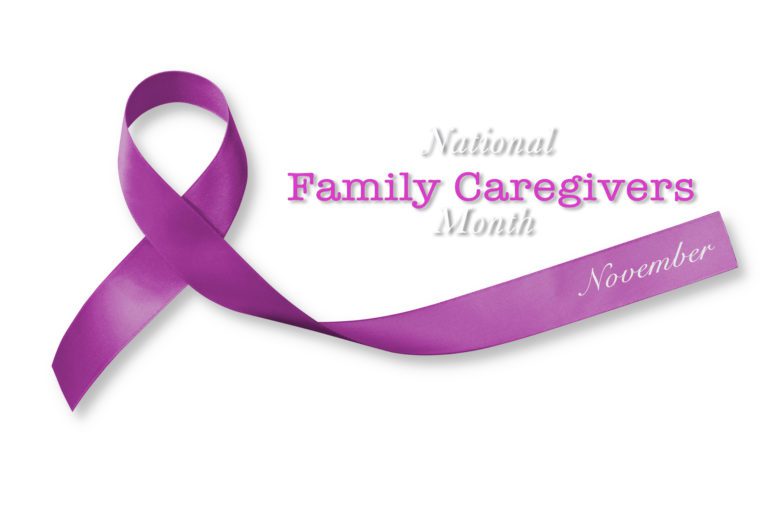When searching for the right support for a loved one, understanding the difference between a caregiver and a live-in caregiver can be crucial. While both provide essential assistance, their roles, schedules, and responsibilities differ significantly. At From The Heart Home Care, we’re here to help families navigate this decision and find the best fit for their unique caregiving needs.
Understanding Caregivers vs. Live-in Caregivers
What is a Caregiver?
A caregiver, sometimes called a personal care aide or home care assistant, is a trained individual who supports seniors or individuals with physical, cognitive, or emotional limitations. Caregivers assist with Activities of Daily Living (ADLs) and Instrumental Activities of Daily Living (IADLs). Their tasks may include:
- Bathing, grooming, and dressing
- Meal preparation and feeding
- Medication reminders
- Companionship and conversation
- Light housekeeping
- Transportation to appointments or errands
Most caregivers work part-time or full-time shifts but do not live with the care recipient. Their services are scheduled by the hour, often through a home care agency like From The Heart Home Care.
What is a Live-in Caregiver?
A live-in caregiver is a dedicated professional who resides in the client’s home, offering round-the-clock care. Live-in caregivers are ideal for individuals who need constant supervision or assistance, such as those with advanced dementia, mobility impairments, or chronic illnesses.
Live-in caregivers:
- Are available 24/7 (with time allotted for sleep and breaks)
- Provide comprehensive, continuous care
- Handle both personal care and household responsibilities
- Offer companionship at all hours
While their duties may overlap with standard caregivers, their on-site presence allows them to respond to needs at any time—day or night.
Key Differences Between Caregivers and Live-in Caregivers
Though both types of caregivers provide essential care, there are some important distinctions:
| Aspect | Caregiver | Live-in Caregiver |
| Living Arrangement | Does not reside with client | Lives in client’s home |
| Availability | Scheduled hours | 24/7 (with scheduled rest) |
| Level of Support | Intermittent care | Continuous care |
| Best For | Clients needing daily or periodic help | Clients needing constant supervision |
| Cost Structure | Hourly billing | Daily/weekly rate |
Understanding these differences is essential for families choosing the best type of care. At From The Heart Home Care, we help clients assess their needs to find the right level of support.
Qualifications of a Caregiver
When hiring a caregiver, it’s vital to understand their background and credentials. Here’s what to look for:
1. Education and Training
While not always required, many caregivers have a high school diploma or GED. More importantly, many complete caregiver training programs that cover:
- Personal care techniques
- Infection control
- Nutrition and food safety
- Dementia care basics
- Emergency response
These programs may be offered by vocational schools, online platforms, or agencies like ours.
2. Experience
Experience is a key factor when hiring a caregiver. Those with hands-on experience often demonstrate better problem-solving and adaptability.
Caregivers may have specific expertise, such as:
- Alzheimer’s and dementia care
- Post-surgical recovery assistance
- Mobility support
- Palliative care
At From The Heart Home Care, we match clients with caregivers who align with their unique health conditions and care preferences.
3. Certifications and Licensing
While requirements vary by state, many caregivers hold certifications like:
- Certified Nursing Assistant (CNA): Trained to assist with basic medical care under supervision.
- Home Health Aide (HHA): Focuses on in-home personal care and light health-related services.
- CPR and First Aid Certification: Prepared to respond in emergency situations.
Certifications provide peace of mind that a caregiver is qualified, competent, and compliant with industry standards.
Learn More: How to Help Prevent Heart Disease at Any Age
Qualifications of a Live-in Caregiver
Live-in caregivers share many qualifications with hourly caregivers, but their role demands additional responsibilities and personal adaptability.
1. Core Caregiving Skills
Like other caregivers, live-in caregivers must be skilled in:
- Personal care (bathing, dressing, hygiene)
- Medication reminders
- Household chores and meal prep
- Fall prevention and mobility assistance
They also need to demonstrate patience, empathy, and excellent communication skills—especially since they will be spending extended time with clients.
2. Additional Requirements
Live-in caregivers must also be:
- Flexible and dependable: Able to respond to client needs at any time
- Physically fit: Capable of lifting, assisting, or supporting clients during mobility
- Emotionally resilient: Living with a client full-time can be emotionally demanding
3. Accommodations and Boundaries
A live-in caregiver must have access to private sleeping quarters and scheduled rest periods. This balance is crucial to avoid burnout and ensure quality care over time.
4. Compliance and Regulations
Depending on your location, there may be specific employment regulations regarding live-in caregivers, such as:
- Required rest hours
- Overtime pay guidelines
- Contractual agreements and employment benefits
At From The Heart Home Care, we ensure all live-in caregivers are compliant with local labor laws and fully vetted for your peace of mind.
How to Choose Between a Caregiver and a Live-in Caregiver
Choosing the right type of caregiver requires an honest evaluation of your or your loved one’s situation. Here’s how to assess your needs:
1. Determine the Level of Care Needed
Consider whether care is needed for:
- A few hours per day or week (choose an hourly caregiver)
- Overnight and full-time supervision (opt for a live-in caregiver)
Evaluate Activities of Daily Living and Instrumental Activities of Daily Living to understand the level of support required.
2. Consider Personal Preferences
Some individuals value privacy and independence, making an hourly caregiver a better fit. Others appreciate constant companionship and reassurance, which a live-in caregiver can provide.
Questions to ask include:
- Does the person require help with nighttime routines?
- Is there a risk of wandering or falls?
- Would having someone in the home 24/7 cause stress or bring comfort?
3. Review Financial Considerations
While live-in caregivers may seem more expensive initially, their services may be more cost-effective for clients who need continuous care.
A few cost-related considerations:
- Hourly rates vs. flat weekly/daily rates
- Overtime for caregivers who work extended shifts
- Possible room and board costs for live-in caregivers
We at From The Heart Home Care can help you compare these options and choose one that aligns with your budget and needs.
How to Find the Right Caregiver or Live-in Caregiver
1. Work with a Trusted Home Care Agency
Partnering with an established agency like From The Heart Home Care ensures:
- Background-checked and qualified caregivers
- Flexibility to try different caregivers if the first isn’t the right fit
- Ongoing support and case management
- Peace of mind for families
2. Conduct Thorough Interviews
Whether you’re hiring independently or through an agency, interview caregivers carefully. Ask about:
- Relevant experience
- Availability and flexibility
- Emergency response skills
- References and certifications
It’s also wise to involve the care recipient in the decision-making process whenever possible.
Learn More: The Growing Demand for Specialized Senior Care
3. Trial Periods and Ongoing Evaluation
Consider arranging a trial period to observe how well the caregiver and care recipient interact. Maintain regular communication to ensure the arrangement remains effective and beneficial for everyone involved.
Making the Right Choice for Your Loved One
Whether you need part-time support or full-time assistance, both caregivers and live-in caregivers play vital roles in ensuring the well-being and dignity of those in need.At From The Heart Home Care, we understand that every client has unique needs, and we’re here to help you find the right caregiver match. From hourly care to 24/7 live-in support, our compassionate team is committed to delivering quality care with heart.






